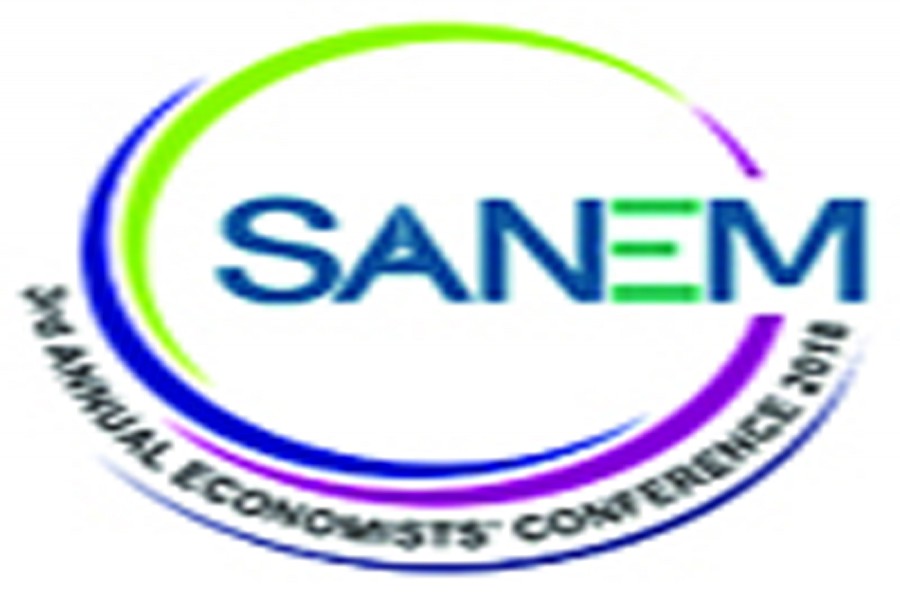Thrust on ensuring 'fair process' in achieving SDGs
SANEM Annual Economists' Confce starts

Published :
Updated :

FE Report
Speakers at a conference on Saturday stressed the need for a 'fair process' in achieving sustainable development goals (SDGs) along with ensuring 'good enough governance' at different levels in different countries.
"The process must be fair. Whatever may be the outcome will be more acceptable if the process is fair," the conference was told, with an observation that the discussion about SDGs is limited in the outcomes only.
The speakers also noted that a little discussion on inequality took place in the country which people have accepted as a fate.
Meanwhile, a study presented at the conference found that Bangladesh should get a grip over corruption to take the performance of MDGs to the next level as corruption has a negative impact on human development index (HDI).
The observations were made at the third SANEM Annual Economists' Conference 2018 titled 'Leave No One Behind in South Asia'. South Asian Network on Economic Modeling (SANEM) organised the conference in the capital.
In his keynote presentation on "Addressing Inequality" at the inaugural session of the conference, Bangladesh Institute of Development Studies (BIDS) Director General KAS Murshid said the discussion about SDGs is limited in the outcomes only and not about the process. The process must be fair. Whatever may be the outcome will be more acceptable if the process is fair, he added.
He said: "There is not much 'demand' (political or social) for equity - at least much less than before; neither consensus. We've accepted inequality as our fate."
Only a few economists and politicians talk about inequality here, said the noted economist. As a result, he added, there is no political or social pressure to address the ever increasing inequality.
He suggested strengthening the grassroots level institutions to address inequality which are now getting away from the rural stage. "I do not think it a good trend."
SANEM chair Prof Bazlul Haque Khondker presided over the inaugural session while executive director Selim Raihan delivered the welcome address.
Another keynote presenter Prof Kunal Sen of Manchester University said that the challenges for India and Bangladesh in attaining the SDGs are almost same. Bangladesh is well ahead in some indicators like enrolment in primary education and nutrition while India is ahead with economic growth and technologically-sophisticated industries.
One of the main challenges for Bangladesh is that its economic growth is very much dependent on readymade garments only, which is not sustainable, he said.
He added that many other countries shifted from RMG to electronics or pharmaceuticals or automobiles that Bangladesh could not do. If Bangladesh move out of RMG and shift to some other sophisticated industries, the growth can be stagnant, he said.
"The prospect for Bangladesh in this case is a bit difficult as state action is crucial in making this type of decision. Private sector cannot decide as they do not have the knowledge," he said. Besides, capacity of the bureaucracy is also important in taking important decisions.
Although Bangladesh's civil servants are good, he said, they do not have autonomy and proper training for good work. But their space of autonomy must be monitored based on performance.
In a breakout session on strong institutions and good governance, Centre for Policy Dialogue (CPD) programme associate Muntasir Murshed said that an increase in government's expenditure would not necessarily improve the human development index (HDI).
Rather, he said, the HDI deteriorates due to prevalence of corruption as it reduces the efficacy of public spending and ultimately impedes development.
According to the Corruption Perception Index (CPI) figures in 2016, Bangladesh topped the list of South Asian region in terms of being relatively more corrupt than India, Sri Lanka and Pakistan.
In another paper presented by assistant professor Shafiun Nahin of Institute of Health Economics (IHE), Dhaka University, it was found that medium-sized firms face more regulatory obstacles in doing business than the small and large ones.
In the developed countries, it is assumed that larger firms are highly productive and more incentive should be given to them as they generate more employment. But it is not true in case of Bangladesh as evident from the study.
The government of Bangladesh has been trying many policy changes like financial inclusion and SME promotion. If the obstacles faced by the medium-sized enterprises, people would then lose interest to be entrepreneurs for generating employment and contributing more to the economic development. "Unless you can ensure growth of medium-sized firms, you will not be able to ensure employment. That's where we are struggling as the growth is good in Bangladesh, not employment."
[email protected]


 For all latest news, follow The Financial Express Google News channel.
For all latest news, follow The Financial Express Google News channel.